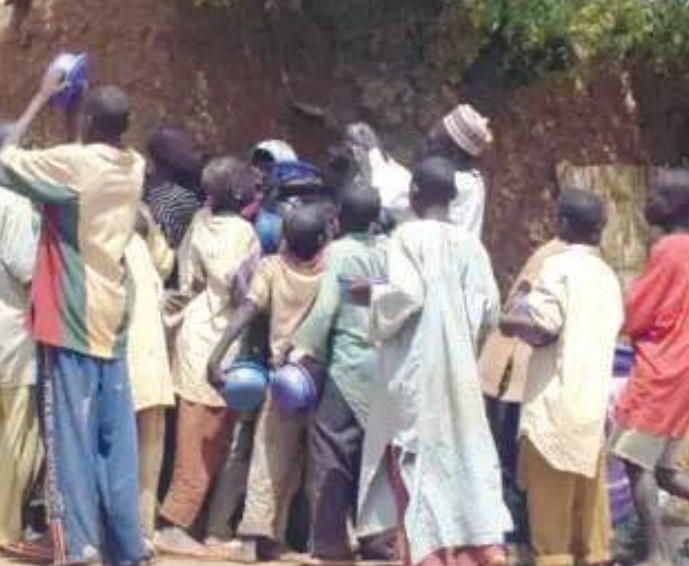X-raying the poverty industry in Nigeria, by Stephanie Shaakaa

Poverty is not just a condition, it has become an industry.

It is not an accident, not an unfortunate side effect of bad governance, but a deliberate strategy that fuels campaigns, builds empires, and sustains careers. Poverty is the most traded commodity in this country. Oil may fluctuate, the naira may collapse, investors may flee, but poverty never runs out. It is stable, predictable, recession-proof. Poverty is Nigeria’s most profitable export, and the market for it never closes.
Politicians need the poor the way landlords need tenants. The poor are easier to control, easier to silence, and easier to buy. Every election season, poverty becomes the cheapest currency. You trade hunger for votes, despair for promises, and broken lives for power. Bags of rice, cartons of noodles, a few thousand naira in a brown envelope,these are the tools of statecraft. What should be our greatest shame has been converted into political strategy.
From the grand stage of campaign rallies to the endless parade of NGO workshops that never feed a soul, poverty has been franchised. It is marketed, distributed, and recycled. There are exceptions of course. A handful are sincere. A few leaders work tirelessly to uplift their people. But they are drops in an ocean of exploitation. The system is designed to ensure poverty never ends, because too many powerful people profit from its permanence.
The supply chain of poverty is as efficient as any industry. Politicians loot budgets. Civil servants inflate contracts. Contractors abandon projects. The result is always the same,more poverty, more desperation, more lives to exploit. A road unbuilt means communities remain isolated. A hospital starved of funds ensures families remain vulnerable. A university closed for months guarantees young people remain idle. These are not accidents,they are dividends. Someone, somewhere, is cashing in.
The cruel genius of the Poverty Industry is how it is disguised as charity. The same leaders who manufacture poverty return with bags of rice and call it empowerment. They starve schools, then hand out notebooks. They loot hospitals, then donate ambulances. They strip budgets bare, then appear on camera handing out stipends. And we, the victims, clap. We kneel. We even thank them for feeding us with our own stolen bread. It is political theater at its most perverse. Oppressors dressed as saviors, plunder repackaged as generosity.
The deeper tragedy is how this poverty has corroded our national character. It destroys dignity, kills ambition, and leaves citizens too exhausted to resist. Survival becomes an achievement, not a right. Begging becomes culture, not shame. Poverty weakens the will to fight, turning citizens into spectators in a political game played at their expense. It has become the most effective weapon of mass destruction Nigeria has ever produced,cheaper than bullets, more enduring than bombs.
And yet, we remain addicted to it. Politicians thrive on it. Religious leaders exploit it. Even ordinary citizens weaponize it against one another. A trader hikes prices overnight not because costs have risen, but because misery is contagious. A neighbor resents another one’s progress, because poverty has taught us to envy rather than build. In Nigeria, poverty is not just an economic condition,it is the glue that holds together a corrupt political order.
This is why every so-called reform feels cosmetic. Why every election feels like a charade. Why every promise rings hollow. Because poverty is not treated as the enemy to be defeated,it is the product to be sold. It is the oil that greases our politics, the stage on which our NGOs act, and the altar where religion profits. As long as poverty remains profitable, no manifesto will save us. No handouts will change us.
Entire careers thrive on the perpetual recycling of misery, where the poor are not helped out of poverty but kept in it, because their suffering is the livelihood of some else.
The real question is not whether Nigeria can end poverty. We know it can. We have the resources, the talent, the capacity. The question is whether Nigeria is willing to dismantle the Poverty Industry,an economy of despair that has turned misery into power and hunger into currency. Until that day, we will continue producing millionaires out of misery, billionaires out of hunger, and leaders out of exploitation.
And the tragedy of it all is simple. In a country so blessed, poverty should have been the greatest shame. Instead, it has become the greatest business.
Until Nigeria stops feeding fat on poverty, until the poor cease to be statistics and start to be citizens, the industry of suffering will remain our most thriving enterprise.
The post X-raying the poverty industry in Nigeria, by Stephanie Shaakaa appeared first on Vanguard News.







